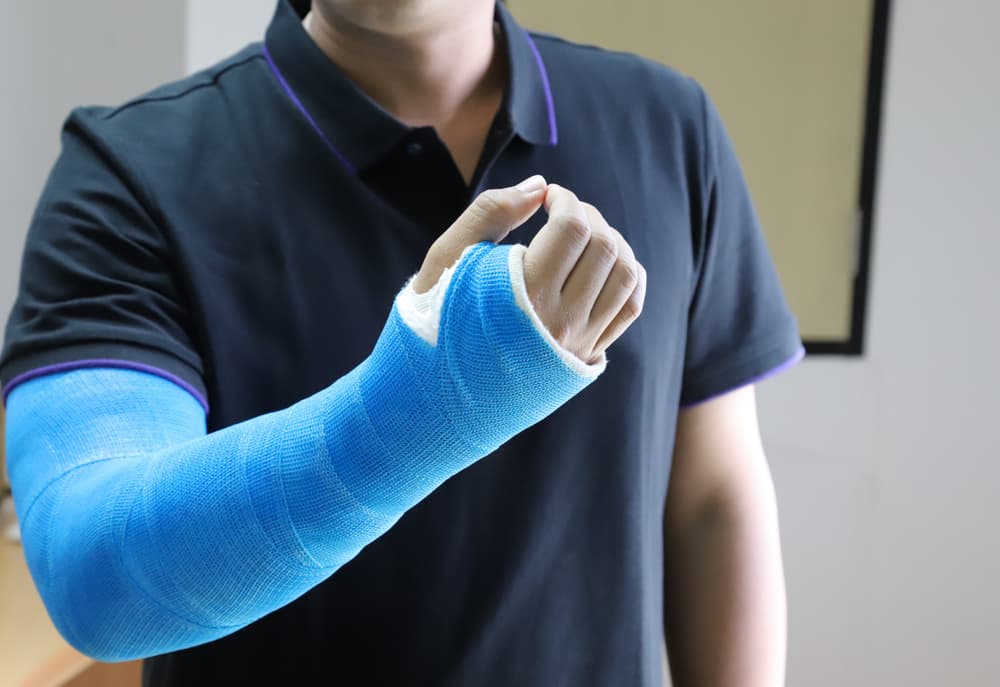Motorcycle accidents may cause operators and riders to suffer extremely serious injuries, especially if the force of a collision knocks them to the ground. Fortunately, an injured motorcycle accident victim can file a personal injury claim or a lawsuit with the at-fault driver’s motor vehicle insurance company.
If the insurance company does not compensate the accident victim fairly via settlement, the accident victim may need to file a lawsuit in court.
The amount of time it takes to resolve a motorcycle accident lawsuit depends on the jurisdiction and venue where the case is pending, along with the specific insurance company and adjuster with whom the accident victim is dealing.
One of the most important steps to streamline your motorcycle accident case — and reach an efficient resolution — is to retain an experienced motorcycle accident lawyer to represent you as early in the process as possible.
Your attorney can gather the documents necessary to file your claim, submit the claim to the at-fault driver’s insurance company, and aggressively negotiate on your behalf for favorable settlement compensation.
If you need to litigate, an experienced San Antonio motorcycle accident lawyer can efficiently file a lawsuit, continue settlement negotiations, or represent you at a civil jury trial or other litigation proceeding.
Every step of the way, your attorney will zealously advocate for you and efficiently pursue the monetary recovery you deserve through a favorable settlement offer or a favorable litigation result in court.
Injuries That Motorcyclists May Suffer

Unlike drivers and passengers in enclosed motor vehicles, motorcyclists have limited protection from the elements. Additionally, they have direct exposure to the ground and their surrounding environment.
Therefore, if they fall in a motorcycle accident, they may suffer extremely serious and debilitating injuries. In some situations, an accident victim who forcefully strikes the ground may suffer fatal injuries.
The injuries that a motorcyclist sustains will depend on the number of vehicles involved, the force of the collision, the number of collisions that occur, and the surface on which the motorcyclist lands when they fall.
Some of the most common motorcycle accident injuries include facial contusions, road rash, mouth and teeth injuries, eye injuries, traumatic brain injuries, bone fractures, soft tissue injuries, rib fractures, internal bleeding, internal organ damage, complete and incomplete paralysis injuries, spinal cord damage, and death.
Upon suffering injuries in a motorcycle accident, you need to immediately obtain medical help. For example, you may need to consult an orthopedic surgeon, neurologist, or other medical expert in addition to your primary care doctor. Additionally, you might need to undergo surgery or other medical procedures or submit to ongoing physical therapy to fully recover from your injuries.
During this time, your attorney can start obtaining important documents in your case, including police reports, medical bills, medical treatment records, and property damage photographs.
After you complete most of your medical treatment, your lawyer may submit a settlement demand package, which includes these documents, to the insurance company.
Motorcycle Accident Types and Causes
When other motorists behave negligently and carelessly, they may cause their vehicle to strike a nearby motorcycle, resulting in severe injuries for the motorcycle operator and any passengers.
Some of the most common types of motorcycle collisions include:
- Sideswipe accidents, where the side of another vehicle strikes the side of a motorcycle that is traveling in the same direction
- Tailgate or rear-end accidents, where the front of another vehicle hits the back tire of a motorcycle
- T-bone or broadside collisions, where the front of another vehicle strikes the side of a motorcycle that is traveling on an intersecting highway or roadway
- Head-on collisions, where another vehicle hits the front of an oncoming motorcycle, typically lead to permanent injuries and fatalities for the motorcyclist
These different motorcycle accidents may result from driver negligence.
Some motorcycle accidents occur when other drivers disobey traffic laws and regulations. For example, another driver might run a red light or stop sign at a traffic intersection, negligently causing their vehicle to strike a motorcycle. Additionally, motorists may speed, fail to use their turn signals, or fail to use their mirrors while driving, resulting in a motorcycle crash.
Motorcycle accidents also frequently happen when drivers come under the influence of alcohol or drugs. These drivers are far more likely than sober drivers to exhibit erratic driving maneuvers, such as speeding or tailgating.
An intoxicated driver may also experience blurred vision and other physical symptoms that prevent them from noticing a motorcycle in the first place.
Additionally, an intoxicated driver might experience limited concentration, impaired coordination, delayed reaction time, and delayed reflexes, preventing them from stepping on their brakes in time to avoid hitting a motorcycle.
Drivers who are ultimately convicted of a DUI or driving under the influence charge may be subject to various criminal penalties and administrative penalties, including loss of a driver’s license. If they cause a motorcycle accident leading to injuries, they might also have to pay civil damages through their insurance company.
In addition to road-rule violations and drunk driving, some motorcycle accidents result from distracted or inattentive driving.
Some of the most common forms of distracted driving include cell phone or tablet use while driving, roughhousing with vehicle passengers, disciplining a young child in the backseat, personal grooming, eating and drinking, listening to loud music, adjusting the volume on a vehicle stereo system, or programming a GPS navigation device while driving.
All of these activities can turn a driver’s eyes and attention away from the road, causing them to miss seeing a nearby cyclist and thereby causing an accident.
Finally, some motorcycle accidents occur when other drivers exhibit road rage or exercise aggressive driving maneuvers.
For example, to move ahead of motorcycle traffic, another motorist might resort to aggressive horn honking, cutting off a motorcyclist in traffic, tailgating a motorcyclist, or weaving in and out of heavy traffic without using a turn signal.
In the process, however, a negligent motorist may inadvertently cause their vehicle to strike a motorcycle, dislodging the cyclist from their vehicle and causing severe injuries.
If you suffered injuries in a motorcycle crash that a negligent driver caused, you should consult a personal injury attorney in your area as quickly as possible.
Your lawyer can review all your legal options with you and file a claim on your behalf with the appropriate insurance company. Your attorney can also aggressively negotiate with insurance company representatives so that you receive the fair and full compensation you deserve to recover for your accident-related losses.
Recoverable Compensation for Motorcycle Accident Injuries
Victims of motorcycle accidents are frequently eligible to receive various types of monetary damages. The monetary settlement, jury verdict, or arbitration award that a motorcycle accident victim recovers will depend on the severity of their injuries, the circumstances surrounding their accident, and the overall cost of their medical treatment.
First, an accident victim may receive compensation for all their past and anticipated medical costs and compensation for lost earnings if they had to miss time from work after their accident.
In addition, an injured motorcyclist may receive various types of compensation for their intangible losses, including monetary damages for mental distress, loss of spousal consortium, inconvenience, loss of use of a body part, past and future pain and suffering, loss of life enjoyment, permanent disfigurement or disability, loss of spousal companionship and consortium, and long-term or lifetime care costs.
To maximize the monetary damages you receive in your case through a favorable settlement offer or litigation result, you should consult a personal injury attorney as quickly as possible after your accident. Your lawyer can promptly file a claim with the insurance company on your behalf or litigate your case in court.
Prerequisites to Filing a Motorcycle Accident Lawsuit
Before filing a motorcycle accident lawsuit, your attorney will likely make at least one attempt to resolve your case via settlement. The settlement process begins when your attorney submits a settlement demand package and a demand letter to the insurance company adjuster handling your case.
A settlement demand package will contain various documents, including witness statements, medical reports, medical bills, police investigation reports, video footage (if any), and property damage photographs. The insurance company will use these documents to assess fault for the accident and determine the likely value of your case.
Upon reviewing the demand package, the insurance company sometimes places a settlement offer on the table. In most cases, your attorney will need to negotiate with the insurance company adjuster, possibly several times, before the adjuster increases their offer significantly.
Insurance companies want to save themselves as much money as possible, so they will offer very little compensation at the onset. If the adjuster refuses to increase their offer following initial settlement negotiations, your lawyer may need to file a lawsuit on your behalf in the state court system.
What Is Motorcycle Accident Litigation?
Motorcycle accident litigation begins when a personal injury attorney files a lawsuit in the court system on the accident victim’s behalf. However, just because the case is in litigation does not mean it cannot be resolved through settlement.
In fact, most motorcycle claims will resolve at some point during litigation.
During litigation, your lawyer can represent you at all legal proceedings, such as a discovery deposition, settlement conference, and jury trial. If your case goes to jury trial, your lawyer can introduce evidence on your behalf and call witnesses supporting your case. The jury will then decide what amount of monetary compensation to award you for your injuries.
Instead, your lawyer can pursue alternative dispute resolution, or ADR, with the insurance company. Common types of ADR proceedings include mediation and binding arbitration.
Length of a Motorcycle Accident Lawsuit
The time it takes to litigate a motorcycle accident case depends on:
- Whether the accident victim needs to undergo additional medical treatment and the amount of time it takes for them to complete that medical treatment
- The insurance company and adjuster with whom you are dealing and their willingness to resolve the case via settlement
- The court where your case is pending and the number of cases on their trial docket that are ahead of yours
- The availability of experts and other witnesses to testify in the case
- The willingness of the insurance company to submit a case to mediation or binding arbitration
While some parties can litigate a motorcycle accident case in a few months, other cases may take between twelve and eighteen months or longer to resolve, depending on the court where the case is pending and its docket availability.
Your motorcycle accident attorney will do everything possible to streamline your personal injury case and resolve it favorably and efficiently.
Call a Motorcycle Accident Lawyer in Your Area Today
One of the most important steps to streamlining your motorcycle accident case is to retain legal counsel as quickly in the process as possible. It is also important to retain an experienced attorney because of the personal injury statute of limitations.

Under the statute, accident victims have only two years to file a lawsuit seeking monetary recovery for their injuries. If they file a lawsuit after the deadline expires, they will no longer be eligible to recover monetary damages.
A skilled motorcycle accident attorney in your area can act on your behalf quickly when settling or litigating your case. If settlement negotiations do not bear fruit in your case, your lawyer can file a lawsuit well within the statute of limitations and handle the litigation proceedings for you.
Your lawyer can also represent you at all in-court proceedings and strive for the best possible result in your case.
Consult a San Antonio personal injury lawyer today to protect your rights and future.
